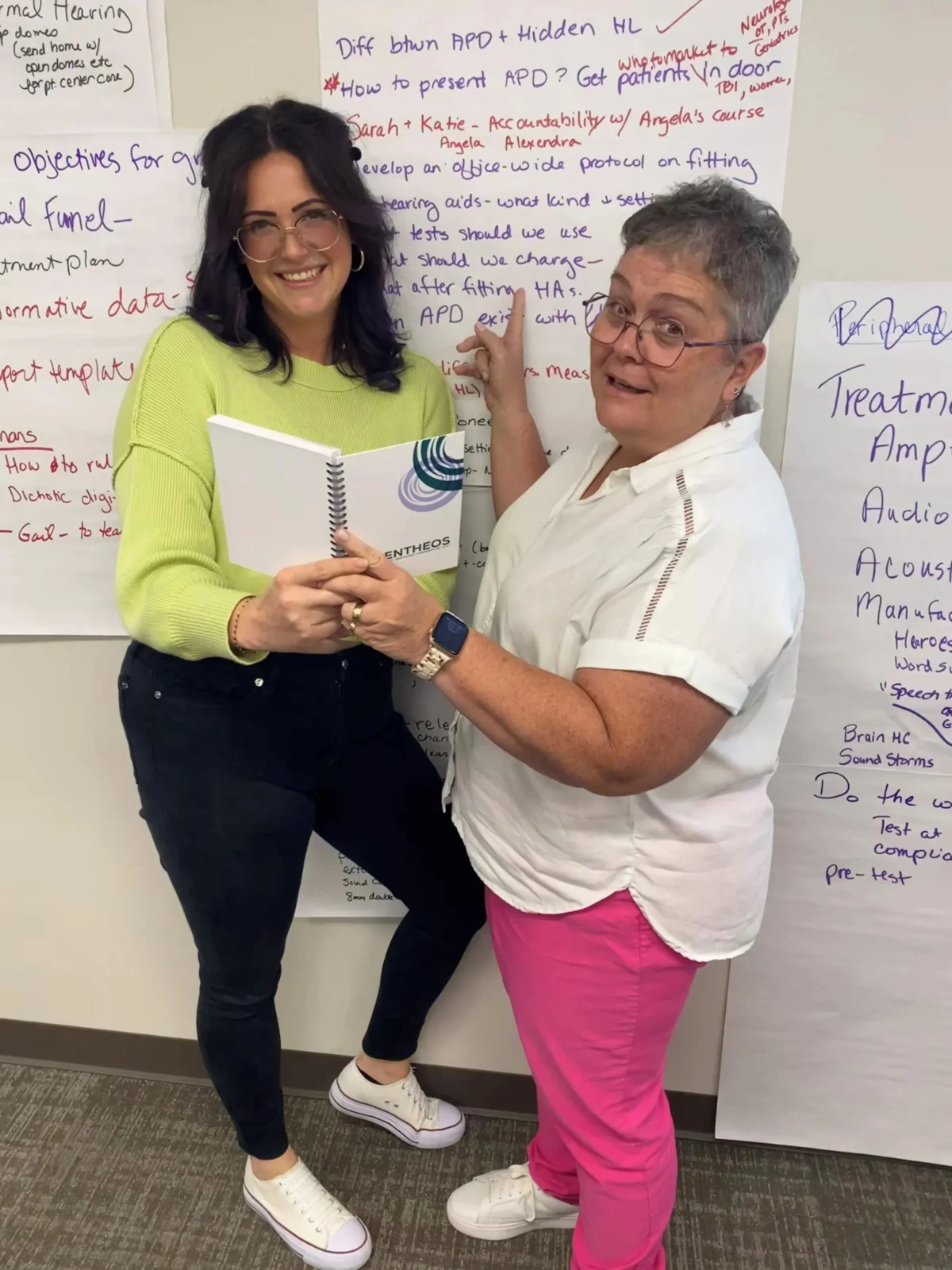At the writing of this month’s Savvy article, Jane Walters and Dr. Mussler are at a collaborative meeting in Chicago. As you know we are part of an audiology cooperative, Entheos. A small group of Entheos private practice hearing healthcare providers gathered for two days to discuss the diagnosis and treatment options available for our adults that have an Auditory Processing Disorder.
If you recall several months ago, we discussed “Know Your Number”. The National Institute of Health is encouraging us to convert the results of your “beep tone” test into a signal number. Most people who have had a diagnostic hearing evaluation do not understand their results. We know our numbers for many things: weight, blood pressure, cholesterol, etc. The hearing numbers range from 0 to 100, the lower the number the better. Number higher than 15 indicate hearing treatment is recommended.
However, your hearing number is not the total picture of how well you hear. Beep tone tests only evaluate your sensory organ (cochlea-inner ear) and the ability to detect sound. Our auditory system is much more complex than just detection. We see individuals who have low hearing numbers, but, have a difficult time understanding speech especially in a more complicated listening environment.
An auditory processing disorder is a hearing issue that makes it hard to understand what people are saying. The condition often starts in childhood, but adults may develop it from having certain diseases, getting a head injury or growing older.
Due to different standards, it is difficult to determine exactly how many people suffered from Auditory Processing Disorder. One recent study concluded that between 1 and 2 children in 1,000 have APD. Another study estimated between 23% and 76% of adults aged 55 and older have APD. That is a lot of people and why it is so important that we at Hearing Solutions of North Carolina develop the best methods of diagnosis and treatment.
An Auditory Processing Disorder can be broken down into 4 different areas of weakness:
1.Auditory discrimination: Noticing small differences between words. For example, if you said, “There are (40) cats here,” someone with APD may hear “There are (four words) cats here.”
2. Auditory figure-ground discrimination: Being able to pick out specific words in a loud or noisy background.
3. Auditory memory: Being able to recall what was said, like remembering phone numbers or song lyrics.
4. Auditory sequencing: Understanding and recalling the order of words.
So, if you have been told “your hearing is normal” but you continue to struggle understanding conversation it is time to dig deeper into your auditory system to understand what is going on and how to develop a hearing treatment plan.
I am excited to hear what Jane and Dr. Mussler learned from their time in Chicago. I will be attending the next scheduled collaboration in July held in Columbus, OH. A collaboration is as good as the group of hearing healthcare professionals’ attending. Being part of Entheos, I know the best of the best will be there.
If you would like more information or to schedule an appointment, give Jamie or Diane a call at 704-633-0023. Remember to like us on Facebook and visit our website: www.hearingsolutionsofnc.com. Dr. Mussler, Jane, Cheryl and I look forward to seeing you soon.

